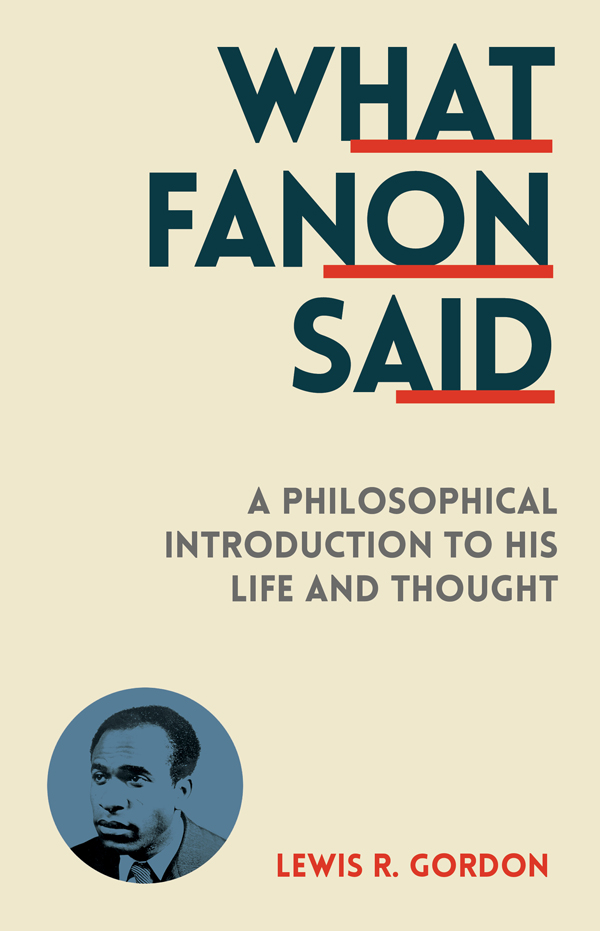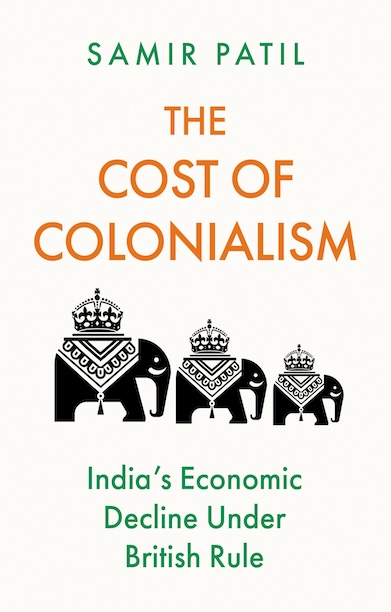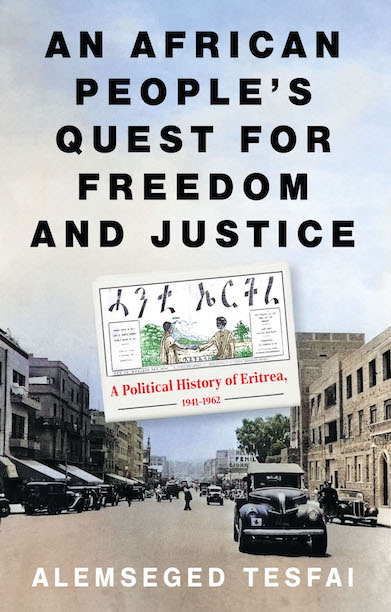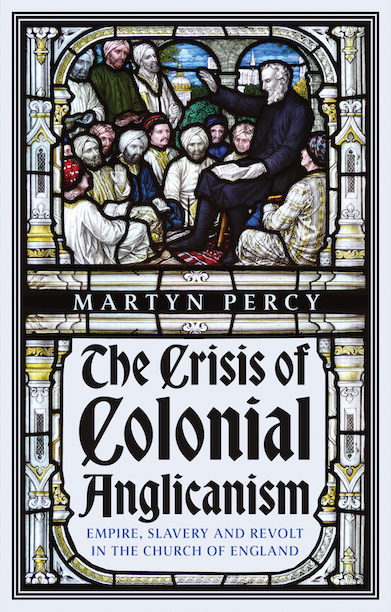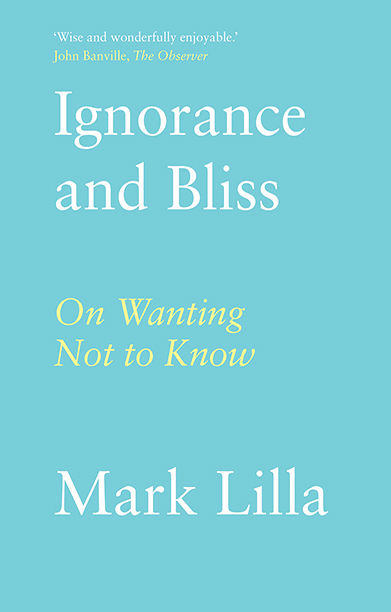What Fanon Said
A Philosophical Introduction to His Life and Thought
Foreword by Sonia Dayan-Herzbrun
Afterword by Drucilla Cornell
Description
Antiblack racism avows reason is white while emotion, and thus supposedly unreason, is black. Challenging academic adherence to this notion, Lewis R. Gordon offers a portrait of Martinican-turned-Algerian revolutionary psychiatrist and philosopher Frantz Fanon as an exemplar of “living thought” against forms of reason marked by colonialism and racism. Working from his own translations of the original French texts, Gordon critically engages everything in Fanon from dialectics, ethics, existentialism, and humanism to philosophical anthropology, phenomenology, and political theory as well as psychiatry and psychoanalysis.
Gordon takes into account scholars from across the Global South to address controversies around Fanon’s writings on gender and sexuality as well as political violence and the social underclass. In doing so, he confronts the replication of a colonial and racist geography of reason, allowing theorists from the Global South to emerge as interlocutors alongside northern ones in a move that exemplifies what, Gordon argues, Fanon represented in his plea to establish newer and healthier human relationships beyond colonial paradigms.
Table of contents
Foreword by Sonia Dayan-Herzbrun
Preface
Introduction: On What a Great Thinker Said
1. “I Am from Martinique”
2. Writing through the Zone of Nonbeing
3. Living Experience, Embodying Possibility
4. Revolutionary Therapy
5. Counseling the Damned
Conclusion: Requiem for the Messenger
Afterword by Drucilla Cornell
Reviews
‘Gordon allows us to read Fanon in new and different ways, contextualising his thought in a wide arc of knowledge — from St. Augustine and traditional Akan philosophy to contemporaries such as De Beauvoir, Sartre, and Senghor, to more recent continental philosophers. Along the way, Gordon incorporates relevant debates from contemporary theoretical movements such as critical race theory. What Fanon Said is a provocative and illuminating study.’ — Abdul R. JanMohamed, University of California, Berkeley
‘As a careful and systematic analysis of the major controversies that have surrounded Fanon, this book is a must read. Lewis Gordon delivers on his promise of boldly examining these controversies while providing a spirited defense of many of Fanon’s positions.’ —Paget Henry, Brown University
‘With devotion and probing insight, Gordon illuminates Fanon’s words, spoken on behalf of those whom we do not recognise as beings, whom we do not even see. Fanon’s words and life remain powerfully relevant today.’ — Anjan Sundaram, author of Stringer: A Reporter’s Journey in the Congo
‘The appropriation of Fanon has become, years after his death, a one-dimensional industry of reductive appreciations of his stand for emancipation. What Gordon has done is to explore, restore and add to an understanding of Fanon as a thinker who was revolutionary to be sure, but a thinker who was also a psychologist and a humanist with immense ideals towards the equality of black and white — as someone who was steeped in the philosophic currents of his day, both those of metropolitan Paris and of hitherto marginalised cultures. This is the best work on Fanon since Macey’s intellectual biography, but richer in its range and more profound in its conclusions.’ — Stephen Chan, Professor of International Relations, School of Oriental and African Studies, University of London
‘Gordon has contextualised Fanon’s words in an impressive analysis of his texts in relation to other thinkers and critics.’ — Socialist Review
Author(s)
Lewis R. Gordon is Professor of Philosophy and Africana Studies at the University of Connecticut, Storrs; European Union Visiting Chair in Philosophy at Université Toulouse Jean Jaurès, France; and Nelson Mandela Distinguished Visiting Professor at Rhodes University, South Africa. His books include Existentia Africana; Disciplinary Decadence; An Introduction to Africana Philosophy; and, with Jane Anna Gordon, Of Divine Warning: Reading Disaster in the Modern Age.
